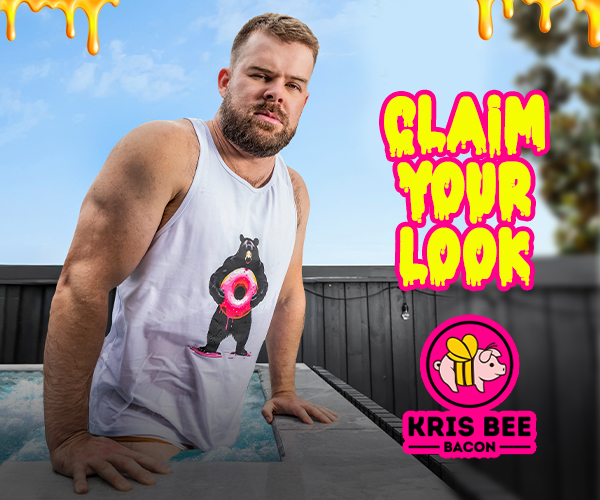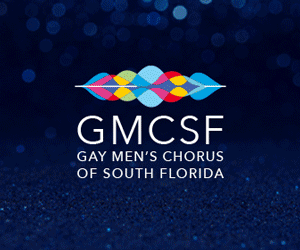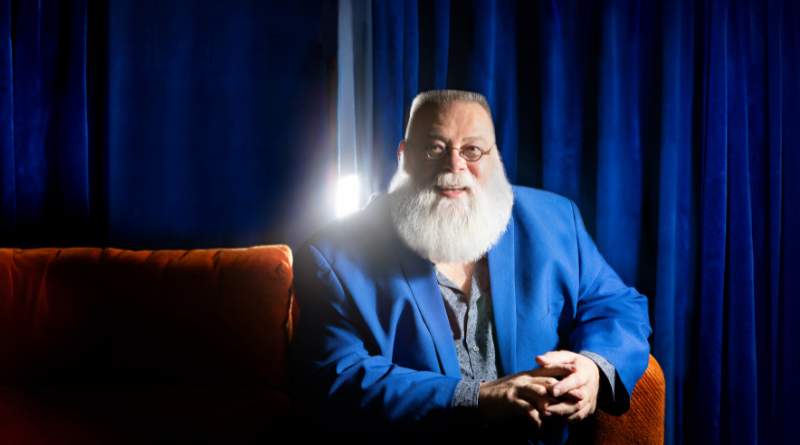
Rhett McDaniel Delivers Excellence on Latest Album
Rhett McDaniel speaks with us on making music for the last three decades, their latest studio album, and more!
Rhett McDaniel’s journey in music began in the small farming community of Waldron, Indiana. From an early age, he immersed himself in the world of music, playing guitar and singing at various venues such as church, school bands, county fairs, and Rotary lodges. But it was in 1995 when Rhett landed his first steady gig, playing bass for the popular Indianapolis R&B band, Debra Mullins and the Datelines.
While Rhett had been writing and singing his own songs since his debut album project, And So On, in 1988, it wasn’t until after graduating from the Indiana University School of Music in 2000 that he began to see music as a possible career. For the next seven years, he assembled a band and played in the Indianapolis area, recording two more albums. The turning point came in 2007 when Rhett made the bold decision to move to the songwriting epicenter of Nashville, TN.
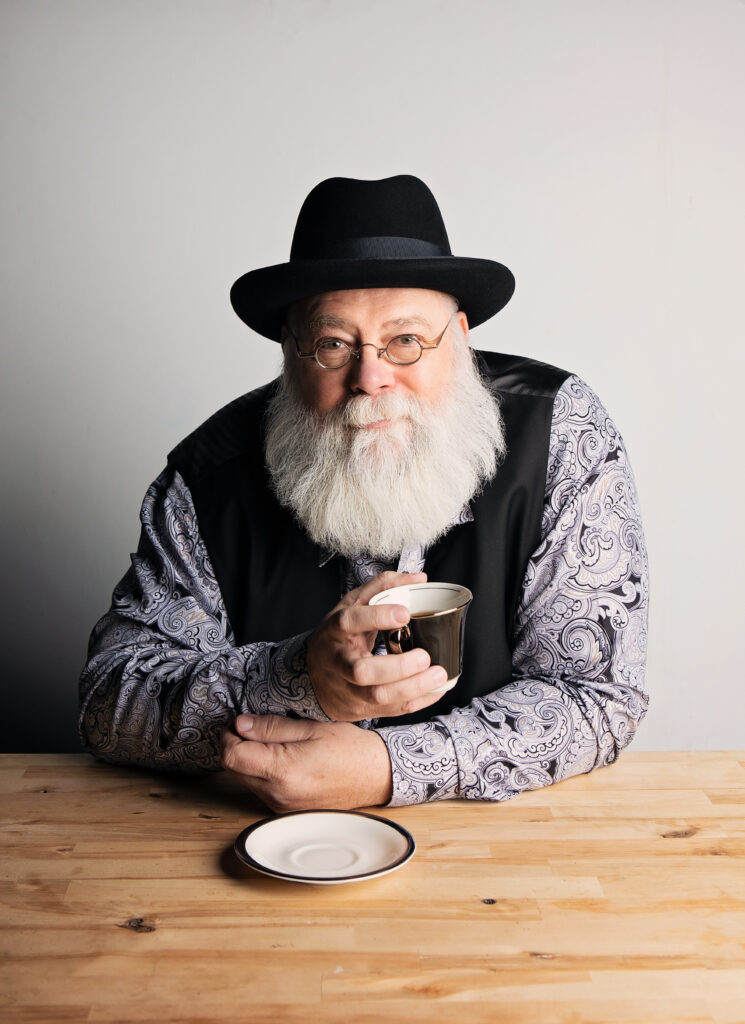
In Nashville, Rhett found a thriving community of fellow songwriters, performing at writer’s nights around town. Despite having songs cut by independent artists, Rhett’s passion for writing and performing his own songs remained. He recorded two more independent album projects in Music City.
During the Pandemic, Rhett connected with his audience by posting videos of him singing new songs on social media. The positive reception inspired him to record a new album of songs, culminating in his sixth solo album, Rhett McDaniel’s Contribution to the Noise Floor.
After personally listening through some of the tracks on this album, I was extremely impressed with the eloquent songwriting and structuring of each track. You can tell that Rhett is no stranger to writing music and singing over instrumentals that he carefully structured song by song. His voice is soft and humble, yet powerful when the time is necessary too. I found that this album was quite relatable to many different people, making it easy to connect to him and the music.
Rhett spoke with me about his latest album and more, check it out below!
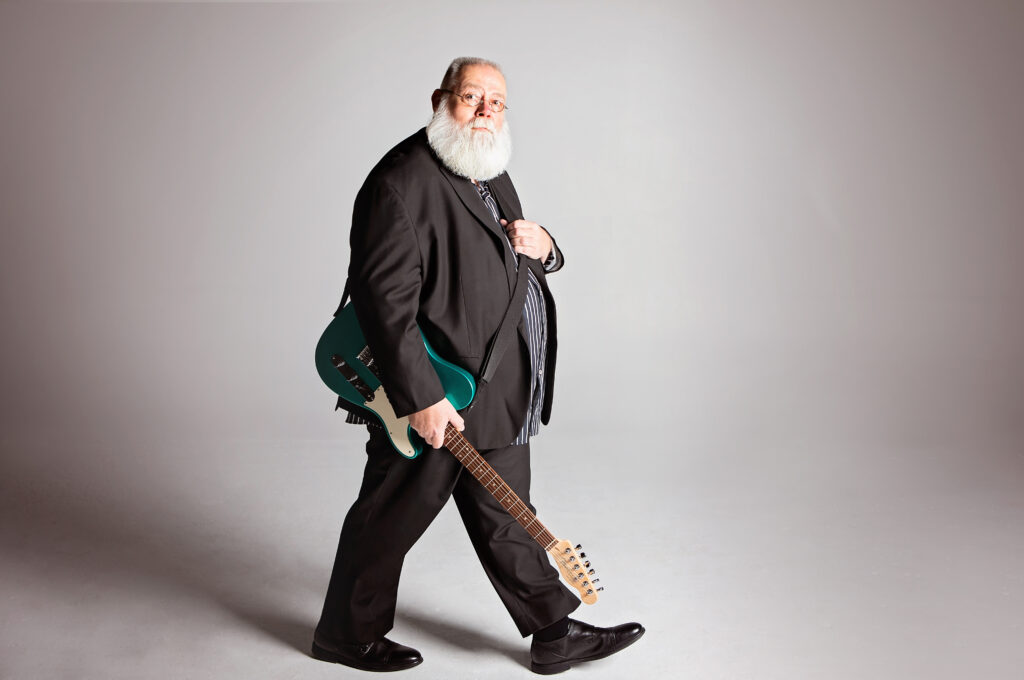
Bryce Quartz: Hey there Rhett, thank you for taking the time to speak with me today! How are you feeling today?
Rhett McDaniel: Hi Bryce. I’m doing well, excited that you want to chat about the album! Making it has been a long road, but I’m so happy it’s finally out in the world.
Bryce Quartz: You released your sixth solo album titled “Rhett McDaniel’s Contribution to the Noise Floor” back in December a few days before Christmas, how are you feeling now that it’s been out for a few months and what has the reception been like so far?
Rhett McDaniel: Yeah it’s been out for a bit and on April 11th we did an album release show at 3rd and Lindsley here in Nashville. We had a sold-out crowd, so that was amazing. I invited my co-writers to join me on stage and sing the songs that we wrote together and people seemed to have a good time. There are a few video clips from the show out on YouTube somewhere.
Bryce Quartz: I really enjoyed listening through this album, you are clearly quite amazing at songwriting and producing! Can you tell us a little bit more about what it was like creating this album?
Rhett McDaniel: Thank you Bryce! I appreciate hearing that. It makes me feel good!
Yeah, so I moved here to Nashville almost 18 years ago to write country songs for other artists. I’ve managed to have some album cuts by independent artists and things like that, but not much success with any major label artists. So, for years, I was that stereotypical struggling Nashville songwriter. The music industry has gone through so many drastic changes since I moved to town that it’s nearly impossible to make a living simply being a songwriter anymore – and being queer certainly hasn’t given me any advantages! And then when the pandemic hit, I lost any traction I may have had on Music Row. And like everyone, I found myself stuck at home alone.
It was my niece who messaged me one day to tell me about this Facebook virtual house concert thing that was happening with musicians from all over and that I should do one. So, I performed on it and got quite a few views, along with some good comments, which prompted me to start writing and recording more videos of myself playing music in my living room. People really seemed to like them. Now, I am fully aware that my audience was also stuck at home and bored with nothing better to do, but I somehow took it as a sign from the universe that I should make an album! Ha! I think I was also going a bit stir crazy.
I began by recording some rough demos of a few of my new songs and then I started messaging all my music friends and calling in every favor I could to help get the tracks recorded. I just made the album for fun of it. Over the years, I have built a small fan base and some people may listen to my album just because I’m fat and hairy, which is all good, but I have no delusions that I have any real viability as some major artist.
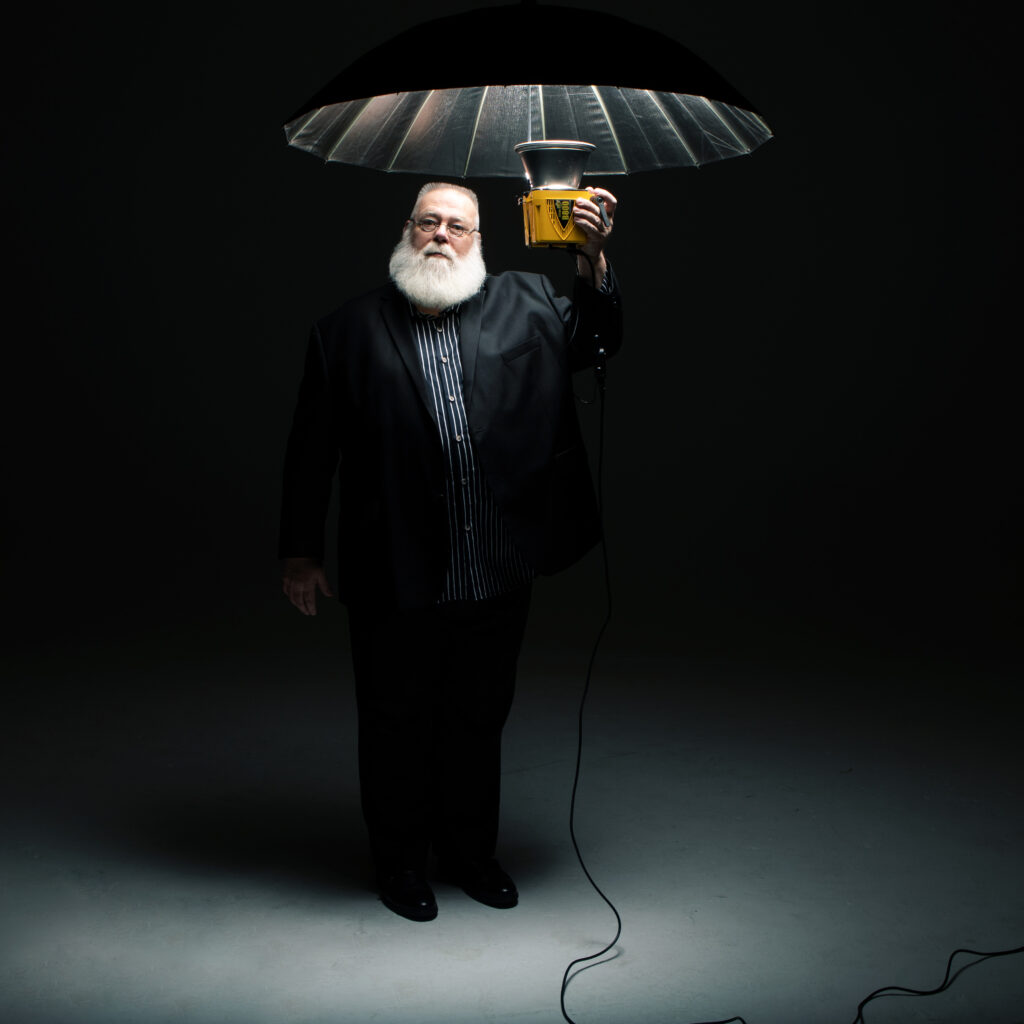
Bryce Quartz: Can you describe your songwriting process for our readers and what does an average studio session look like for you?
Rhett McDaniel: I’m a painfully slow songwriter and can drive my co-writes crazy. I can take weeks, months, or years to finish a song when I’m writing by myself. When I’m writing songs with other writers to pitch to potential publishers or artists, that’s a different process all together. In a Nashville writing session, you might be writing with one, two, three or more writers on one song. So, at a typical session, after everyone arrives, we pull out our guitars and laptops and start throwing out song ideas. Eventually, we will agree on what idea to work on and then the fun begins! Everyone just starts throwing out melody and lyric ideas and somehow a song is born. It’s an amazing thing to be part of and, honestly, slightly mystical. Before we all go our separate ways, one of us performs the song and we all record it with our phones so we have it for reference later.
Those sessions can stress me out because I’m slow and neurotic. In those sessions, you have to come up with ideas quickly to keep up with the other writers in the room. The sessions usually last about four hours and out of that will come at least a good first draft of a complete song. I remember when I first moved here, I would book morning and afternoon writing sessions, so I’d be writing two songs a day. Some writers are amazingly fast and good. But being both fast and good is hard for me.
I re-write, re-write, and re-write, sometimes completely starting over or writing a second version of the song that has a totally different feel. I’m good for about a two or three hour chunk and then I have to take a break. Every once in a while, and you’ll hear this from lots of songwriters, a song just spills out of you almost in real time. I can say has happened to me maybe once. It’s usually work for me to get the song out. I have a small demo studio in my house and that’s where I write when I’m alone. I belly up to my computer with my guitar and type lyrics into a Word doc and use online rhyming dictionaries. My phone is where I keep notes and voice memos and all kinds of strange bits of ideas. Then, when I’m in a writing session or I just need to conjure up some inspiration, I can scroll through those.
As far as my recording process, that can happen almost anywhere. In the old days, you had rent a studio and be under a lot of pressure to go in and do your work quickly. Now, you only need a computer, a decent microphone and a quiet room. So, I often start with an acoustic guitar track and just a rough vocal track, which are recorded against click track for timing. That way, I can send those files to other musicians to record their parts. And then they send it back to me. Then, after all the individual tracks are recorded, I take them to a professional studio and work with a mixing engineer to make it all sound amazing. Mixing engineers are magicians.
Bryce Quartz: You’ve been making music for quite some time now, six solo studio albums is a lot of work! What are some highlights for you over the years whether it be special moments performing, writing a song, or learning something new along the way?
Rhett McDaniel: I haven’t had much commercial success, so I don’t know about having many highlights. . . It’s always exciting when someone records one of your songs, no matter who it is. I remember the first time I signed a song with a publisher, they sat me down in a big conference room and I signed papers and then I had one of those cheesy ‘grip and grin’ photos taken with the publishers. That can make a person feel more like they are officially in the music business, I guess. That stuff is always a highlight.
But I think you hit on it when you asked about learning something along the way. That has to be the best part. I always feel like I have so much to learn and that’s a driving motivator for me. Every time I write a song or record a demo or do a big project like this album, I learn so much. That’s what keeps us all going, right? You look back with newfound wisdom on whatever you just created and think about ways you could have made it better. It doesn’t matter if it’s a song I wrote or the deck you built on the back of your house. The experience inspires you to do the next thing and the next thing, always wanting to improve and do better. Now that this album is finished, I know exactly how I should have done it! It’s maddening!
And who knows, maybe my highlights are yet to come! You’re never too old, right?
Bryce Quartz: Are there any other musicians that you have taken inspiration from over the years that have influenced your own songwriting and producing styles?
Rhett McDaniel: I grew up in a household that listened to mostly outlaw country, so that’s guys like Waylon Jennings, Willie Nelson, and Hank Jr. When I got to high school in the ‘80s I began to gravitate toward electronic and pop music. I was really into bands like Kraftwerk, Devo, Depeche Mode, Orchestral Maneuvers in the Dark, Yaz. Looking back, I can see that I was probably trying to show people that I saw myself as different. I sure wasn’t like the other farm boys in my tiny town in Indiana. After I got to college, someone gave me a cassette tape of Lavender Country, the Patrick Haggerty gay country album. This changed my world. I had abandoned country music for electronic and pop music because I could see myself in that music and those artists. It was a very queer time in music, though they didn’t talk out loud about it much, bands like Culture Club, Wham!, the B52s, but country music has always been my first love.
Then, in the late ‘80s, lesbian artists were beginning to have some commercial success – artists like the Indigo Girls, k.d. Lang, Melissa Etheridge, and Kristen Hall. I found myself being jealous of all these women with their acoustic guitars, writing amazing songs and gaining acceptance, really making things happen, while the queer men seemed to only make dance music. It frustrated me and I figured there was no place for a guy like me with an acoustic guitar, so I focused on writing songs for other artists. That’s what brought me here to Nashville.
As a result, I think the music I create for myself as an artist is this bizarre combination of country, pop, and electronic music. This album is definitely a mix of genres.
Bryce Quartz: You’ve released a few lyric videos for some of the songs on this album, do you have any plans to release more of them or other visuals for any other songs on this album?
Rhett McDaniel: I do plan to. People seem to be more willing to watch a lyric video of a song that simply listen to an audio file. Plus, I enjoy making them.
Bryce Quartz: For our readers, what are three songs from this album that you’d want first time listeners to hear first?
Rhett McDaniel: Ohh man that’s a great question! If someone would listen to three songs off the album, I would be thrilled!
“Shadow Side” has been the song that a lot of people have said they really like, so that’s an easy one to pick. “What Money Does” is a song that I have performed the longest and has become a song that people kind of know me for. And the third is the last song on the album called “I’m Not Angry Anymore.” I am very cognizant of who I am as a person when I choose which songs to perform as an artist. My catalogue is full of songs I’d never personally sing. You know, those very traditional, radio friendly country songs about male/female relationships. . . I can’t sing those because it’s just not true to who I am. In the same way I can’t sing songs about hanging out at the bars or dancing at the clubs. I’m not that, either. But “I’m Not Angry Anymore” is one of those songs that I can say, “Yeah, that’s a lyric that only a man of a certain age could convincingly sing about.”
Bryce Quartz: Thank you again for taking the time to answer my questions today! Is there anything else you’d like to share with our readers?
Rhett McDaniel: Thank you, Bryce! I’m so grateful for the opportunity to get the word out about the album! You know, there’s never been a better time to be a queer artist in Nashville. I’m so excited to see artists like Lil Nas X, Orville Peck, Brandi Carlile, and T.J. Osborne shaking up Nashville and Music Row. I wish I were 20 years old right now, but, as usual, I got to the party late!
Be sure to stream Rhett McDaniel’s latest studio album on your preferred streaming platform now, and follow him on social media using the links below!
Music Links Instagram Twitter Website

